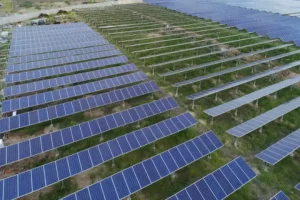![]() China has dropped a hybrid energy project on three Sri Lankan islands in the Jaffna peninsula close to India.
China has dropped a hybrid energy project on three Sri Lankan islands in the Jaffna peninsula close to India.
The Chinese embassy in Colombo tweeted that the hybrid energy project has been suspended due to “security concern” from a third party. It added that it has now signed a contract with the Maldivian government to set up solar power plants.
The Chinese embassy did not mention India in its tweet, which said: "Sino Soar Hybrid Technology, being suspended to build Hybrid Energy system in 3 northern islands of Sri Lanka due to 'security concern' from a third party, has inked a contract with Maldivian gov't on 29 Nov to establish solar power plants at 12 islands in Maldives".
Sino Soar Hybrid Technology, being suspended to build Hybrid Energy system in 3 northern islands
due to 'security concern' from a third party, has inked a contract with Maldivian gov't on 29 Nov to establish solar power plants at 12 islands in
.https://t.co/ZhnETZYN6P
— Chinese Embassy in Sri Lanka (@ChinaEmbSL) December 1, 2021
The news was reported by Sri Lankan website ADAderana.
The news website said that the Sri Lankan cabinet had on January 18 had approved a proposal "to involve Sinosoar-Etechwin Joint Venture in China to install ‘hybrid renewable energy systems’ in Nainativu, Delft or Neduntheevu, and Analaitivu, located in the Palk Bay".
Reportedly, India lodged a protest with Sri Lanka citing security reasons as the proposed energy project was located in islands close to the Indian coast.
Also, Colombo took this decision almost around the same time as it terminated the East Container Terminal near the Colombo Port that had been awarded to India and Japan by the previous government. With both Japan and India expressing their unhappiness, Sri Lanka subsequently awarded the West Container Terminal to India, which was eventually given to the Adani Group.
China and Sri Lanka relations have been rocky this year. Just recently the two emerged out of a spat over the prolonged presence of a ship laden with contaminated fertiliser that had been rejected by the Sri Lankan agriculture ministry. The Chinese embassy, in its true wolf warrior style of diplomacy, mounted pressure on Colombo to accept the contaminated fertiliser. The company, Qingdao also sent a legal notice to the Sri Lankan government to pay damages.
The 99-year lease of the Hambantota Port to a Chinese company after Sri Lanka could not pay the infrastructure debt too remains a constant reminder of exploitative Chinese projects that impinge on the sovereignty of smaller nations.




















